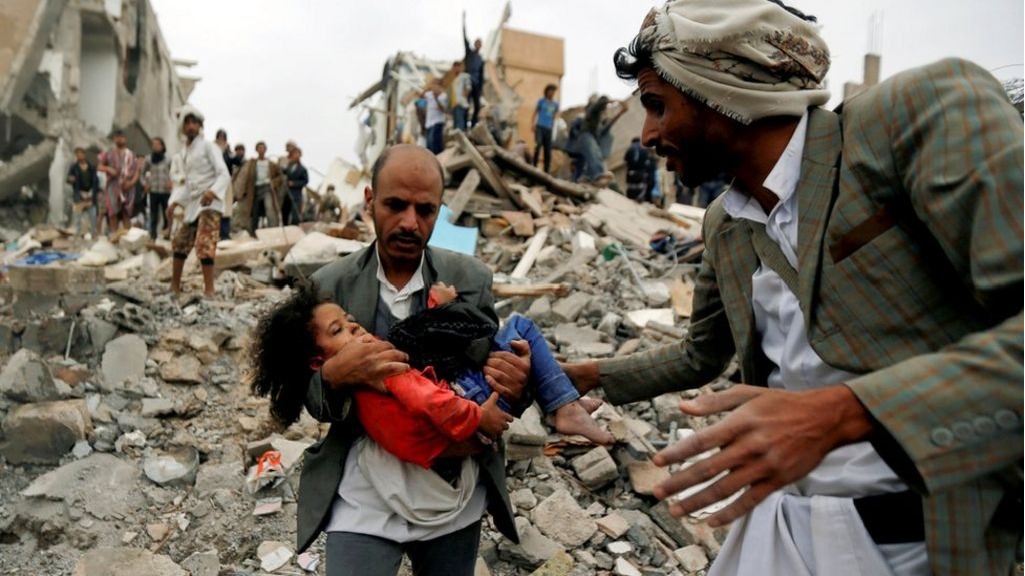UNICEF Yemen
$52 raised
TARGET $500
Please support this cause
$
AUD
About
Yemen, in the Middle East, is experiencing the worst humanitarian crisis in the world. Today, over 24 million people, including more than 11 million children - nearly half the entire population of Australia - are in dire need of food, medical treatment, education, water and sanitation.
The crisis in Yemen is quickly becoming a catastrophe as coronavirus cases increase, and already fragile health systems are failing.
As a result of the pressure that coronavirus is putting on hospitals, and increasingly difficult access to remote regions, more children are at risk of malnutrition and easily preventable disease.
In Yemen...
- More than 12.3 million children are in need of humanitarian assistance.
- Today, nearly 1.2 million children live in active conflict zones in areas witnessing heavy violence.
- Over 2 million children are malnourished
- Nearly two-thirds of girls are married before the age of 18
- A child dies every 10 mins of preventable disease
- 2 million children are out of school because of conflict, now with COVID-19 every school is closed
UNICEF is providing children caught in Yemen's violent conflict with vaccines, clean water, sanitation facilities, emergency food, medicine and much needed medical kits. They're also working hard to keep children in school by giving incentives to more than 128,000 teachers who have not been paid for over two years and training teachers in how to counsel children whose lives have been ripped apart by war.
UNICEF is one of the only international agencies on the ground in Yemen, but they are massively underfunded.
The crisis in Yemen is quickly becoming a catastrophe as coronavirus cases increase, and already fragile health systems are failing.
As a result of the pressure that coronavirus is putting on hospitals, and increasingly difficult access to remote regions, more children are at risk of malnutrition and easily preventable disease.
In Yemen...
- More than 12.3 million children are in need of humanitarian assistance.
- Today, nearly 1.2 million children live in active conflict zones in areas witnessing heavy violence.
- Over 2 million children are malnourished
- Nearly two-thirds of girls are married before the age of 18
- A child dies every 10 mins of preventable disease
- 2 million children are out of school because of conflict, now with COVID-19 every school is closed
UNICEF is providing children caught in Yemen's violent conflict with vaccines, clean water, sanitation facilities, emergency food, medicine and much needed medical kits. They're also working hard to keep children in school by giving incentives to more than 128,000 teachers who have not been paid for over two years and training teachers in how to counsel children whose lives have been ripped apart by war.
UNICEF is one of the only international agencies on the ground in Yemen, but they are massively underfunded.
I'm raising funds for

UNICEF Australia Yemen Crisis
UNICEF Australia is racing to help as many children as we can, as quickly as possible. We are providing children caught in Yemen’s violent conflict with vaccines, clean water, sanitation facilities, emergency food, medicine and much needed medical kits. We’re also working hard to keep children in scKS
About Fundraiser
Kira Sweet
Bowral, NSW
SINCE Jul 2020
3
Donations
$52 raised
TARGET $500
Please support this cause
$
AUD
I'm raising funds for

UNICEF Australia Yemen Crisis
UNICEF Australia is racing to help as many children as we can, as quickly as possible. We are providing children caught in Yemen’s violent conflict with vaccines, clean water, sanitation facilities, emergency food, medicine and much needed medical kits. We’re also working hard to keep children in scKS
About Fundraiser
Kira Sweet
Bowral, NSW
SINCE Jul 2020
3
Donations
